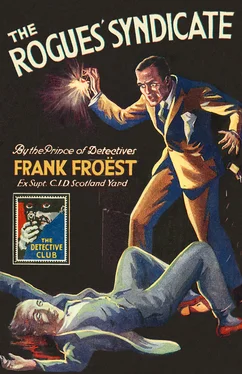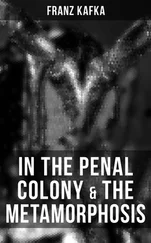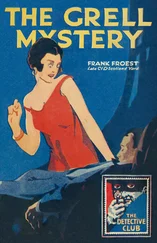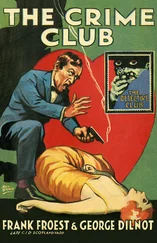1 ...6 7 8 10 11 12 ...15 ‘And sand-bagged myself on the back of the head,’ interpolated Hallett with irony.
Royal gave a shrug.
‘Mr Menzies doesn’t take any risks, sir. It couldn’t do you any harm. They know me at the hotel, and that’s how it was I was able to get into livery and walk into your room pretty well as I liked.’
A new light broke upon Hallett.
‘I get you. I thought perhaps I was a bit fogged when I got up, and had forgotten where I put things. You’ve been searching my room.’
Royal’s face never shifted a muscle.
‘I don’t admit it, sir. That would be illegal without your permission.’
‘Illegal or not, you did it,’ retorted Hallett. ‘I hope you’re quite satisfied.’
‘Oh, there’ll be no more trouble about that. Mr Menzies told me on the telephone just now that he’d cabled to the States, and they’ve put your reputation straight. Besides, there’s what I learned about you.’
‘I suppose you read my letters?’ ventured Hallett. ‘No; don’t worry to soothe me down. I’d probably have killed you if I’d caught you at it, but I’m quite calm now. By the way, there was a fiver—’
A flush mounted to the temples of the detective and he shook his head in vehement denial of the implication contained in the broken sentence.
‘I had to take it, or you might have suspected something. I passed it on to the servants, and told them what to do. I never saw the Press people myself. Some of ’em might have known me. When you went down to breakfast I changed my clothes and slipped a ’phone message through to headquarters. They told me to hang on to you till Mr Menzies had seen you. You’d never have known a word about it if it hadn’t been for our bird down below.’
He jerked his head in the direction of the cells.
Hallett begun to appreciate some of the realities of detective work. Before he could make any comment, Menzies came in. He nodded affably to the young man.
‘Morning, Mr Hallett. Not much the worse for last night, I see. I’ve got a little job for you presently. Meanwhile, I want to see your friend down below. Like to come along?’
He made no apology for the espionage he had set on foot, and Hallett did not think it worthwhile to thrash out the subject again.
‘William Smith’, it seemed, had already been searched with care and thoroughness. Royal explained to his chief that nothing which would serve as a hint as to whom he was had been found on him—nothing but the pistol, nine cartridges, and some money.
‘Have you looked for the name of the tailor on his clothes—the brace buttons, the inside of the breast-pocket, the trousers band?’ demanded Menzies.
‘Of course, sir,’ said Royal. He was a trifle offended that it should even be thought that he had neglected so elementary a precaution. ‘There’s nothing—nothing at all.’
Preceded by a uniformed inspector, they went down to the cells. Smith looked up sullenly from the bench on which he was seated, and met Menzies’ gaze squarely.
The detective chief was no believer in Lombroso’s theories of physiognomy, but he studied the face intently. In point of fact, he was analysing the features to discover if he had seen the man before. He wanted, too, to get some clue as to the manner he should adopt—authoritative and official, or familiary and persuasion.
‘Well, sonny,’ he said gently, ‘you’ve tumbled into a mess. Attempted murder is a serious business in this country.’
Smith glanced at him blackly over his shoulder. Menzies went on:
‘Of course, we don’t believe the cock-and-bull story you told Mr Hallett of there being a gang of you—’
‘You don’t, eh?’ exclaimed the prisoner, wheeling in sudden passion to face his visitors. ‘Then you are—what shall I say?—wooden blockheads!’ He pointed a long, slender forefinger at each of them in turn. ‘You and you and you! I tell you, you will be marked. I failed—but there are others who will not fail if you persist.’
Royal turned away to hide a snigger. This kind of melodrama failed to impress him.
‘No doubt, no doubt!’ assented Menzies soothingly. He might have been calming down a headstrong questioner at a vestry meeting. ‘But there are a good many police officers in London. It will take a long time to kill ’em off. Now, why don’t you be reasonable, Mr Smith?’
‘Pah!’ interrupted the prisoner.
He spat on the cell floor to indicate his contempt.
‘You’ve shown you know something about this murder,’ went on Menzies. ‘The judge is pretty sure to take that into account one way or the other at your trial. I, of course, should tell him if you helped us. It would probably make a difference, you know.’
The prisoner showed two rows of yellow teeth in an unmirthful, contemptuous grin.
‘Go away, wooden-head! I shall not go to prison, but you will die. You don’t know what you call—what you are up against.’
‘Perhaps I’ve got an idea,’ said Menzies. His voice changed. ‘I don’t know whether you’re playing the fool, my man,’ he said sternly. ‘or whether you really believe that kind of wild talk. Perhaps your friend Errol will be able to enlighten us.’
‘Errol?’ said Smith blankly. ‘I know him not.’
‘I hear you,’ said Menzies. ‘You think over what I’ve said, my lad. Meanwhile we’ll have a doctor to look at you.’
MENZIES let an unparliamentary expression slip from his lips as the cell door clanged behind them. It is tantalising to have a piece of evidence drop into one’s lap, so to speak, and then refuse to be evidence. He was annoyed because his efforts to unlock the lips of the prisoner failed. He knew that if only the man could have been induced to talk, days, possibly weeks, of heartbreaking labour would be saved.
This fresh development ‘had him guessing’, as Jimmie Hallett might have said. Who was ‘William Smith’? Why had he threatened Hallett, and even gone so far as to try to carry his threat into execution? The hint of an organised conspiracy to save the murderer of Greye-Stratton would have excited his derision if it had not aroused speculation. The secret societies in England may talk murder at times, but they never seriously plot murder or carry out a murder. A man who imperils his neck has invariably some strong personal motive. And when others actively shield him, they also have some other motive than pure altruism.
One person may commit an irresponsible act for no reason; it is even conceivable that two people may act in concert in some insane crime. But here were at least three people concerned, and possibly more—the woman who had passed the cheques to Hallett, the murderer of Greye-Stratton, and ‘William Smith’. What was the link that bound them all together? That each was acting from some powerful self-interest he felt confident. It might be community of interest, but he was sceptic enough to think that accidental.
The chief-inspector checked his flow of thought with a jerk. Speculation without materials spelt a fixed theory—and to a detective a premature theory may be fatal. He is apt to try to prove his theory rather than prove the truth.
He laid a hand on Hallett’s arm as the goaler inserted a key in the big steel door that led to the charge-room.
‘Wait a minute. There are a dozen people the other side of the door waiting for us. I want you to have a good look at them when you go in. If you recognise any of them I want you to go up and touch her.’
‘ Her ?’ repeated Hallett.
His pulse throbbed unaccountably faster. Menzies eyed him keenly.
‘You said last night that you would probably know the woman again who planted the cheques on you. I’m relying on you, Mr Hallett. You’re a man of the world. Don’t run away with the idea that a pretty face can’t be mixed up in crime.’
Читать дальше












